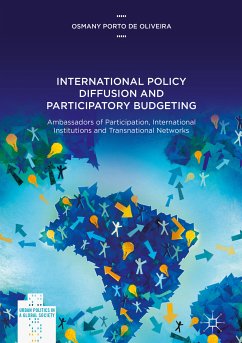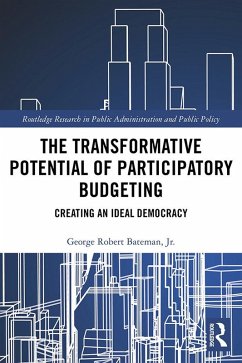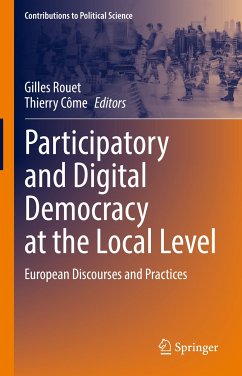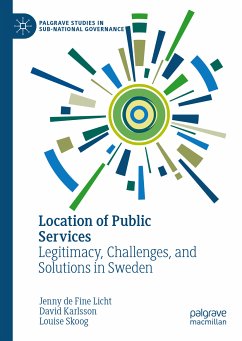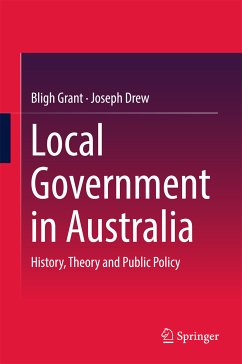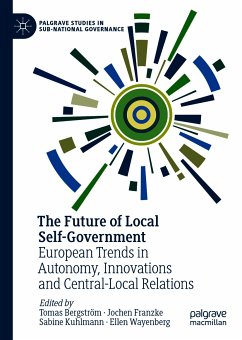
The Rise, Spread, and Decline of Brazil's Participatory Budgeting (eBook, PDF)
The Arc of a Democratic Innovation

PAYBACK Punkte
26 °P sammeln!
This book examines the rise, spread and decline of participatory budgeting in Brazil. In the last decade of the twentieth century Brazil became a model of participatory democracy for activists, practitioners, and scholars. However, some thirty years later participatory budgeting is in steep decline, and on the verge of disappearing from Brazil. Drawing from institutional, political choice, civil society, and public administration literature, this book generates theory that accounts for the rise and fall of an innovative democratic institution. It examines what the arc of the creation, spread, ...
This book examines the rise, spread and decline of participatory budgeting in Brazil. In the last decade of the twentieth century Brazil became a model of participatory democracy for activists, practitioners, and scholars. However, some thirty years later participatory budgeting is in steep decline, and on the verge of disappearing from Brazil. Drawing from institutional, political choice, civil society, and public administration literature, this book generates theory that accounts for the rise and fall of an innovative democratic institution. It examines what the arc of the creation, spread, and decline of participatory budgeting tells us about the long-term viability and potential democratic impact of this innovative democratic institution as it spreads globally. Will the same inverted trajectory plague other countries in the future, or will they be able to sustain participatory budgeting for greater periods of time?
Dieser Download kann aus rechtlichen Gründen nur mit Rechnungsadresse in A, B, BG, CY, CZ, D, DK, EW, E, FIN, F, GR, HR, H, IRL, I, LT, L, LR, M, NL, PL, P, R, S, SLO, SK ausgeliefert werden.




